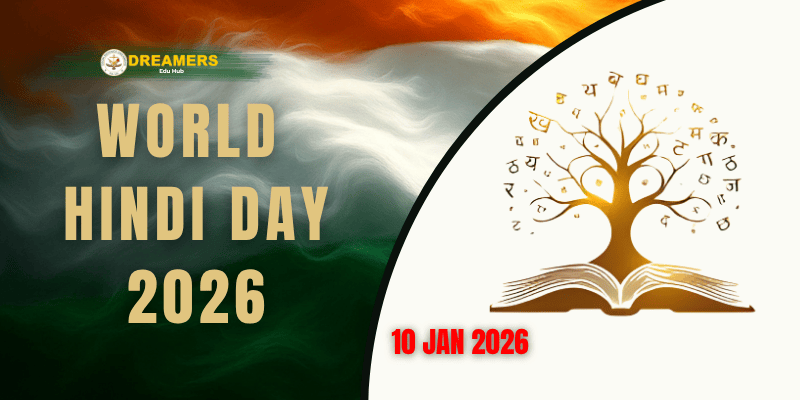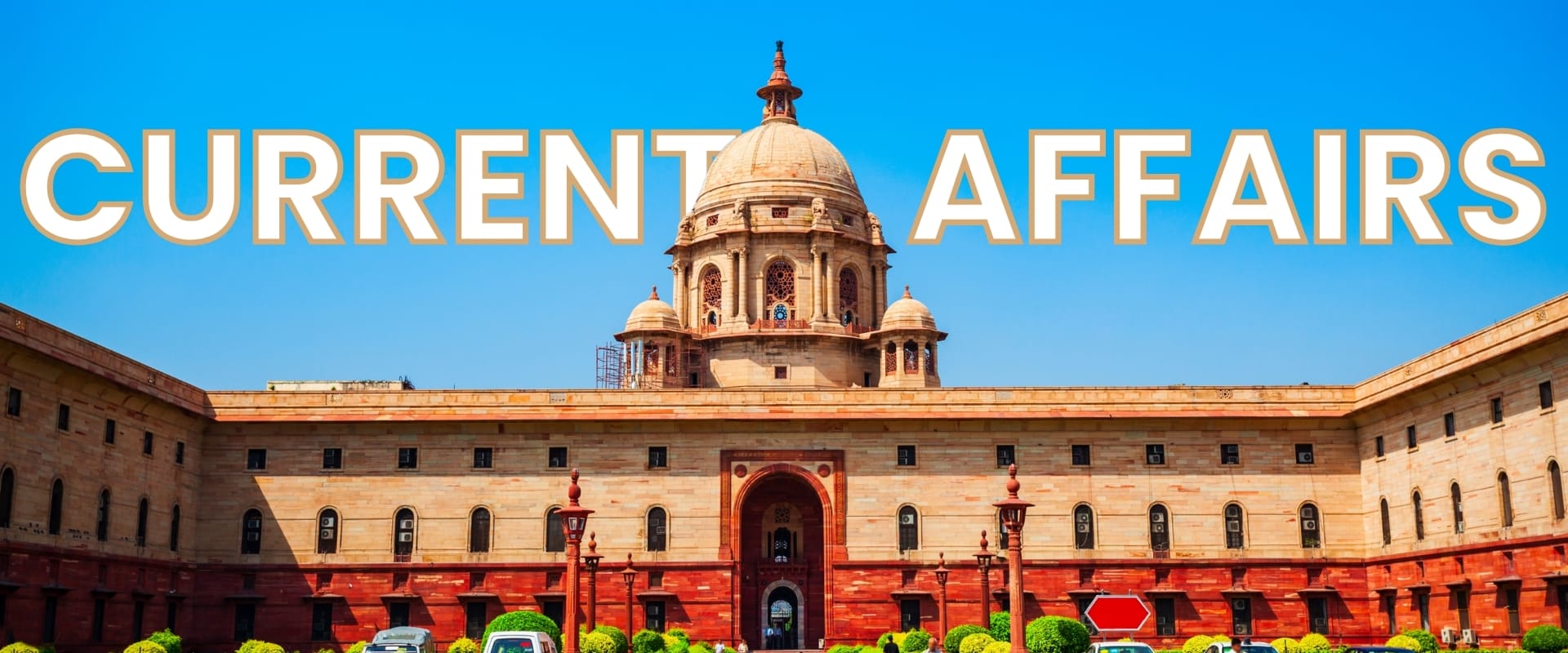Introduction
Every year on 10 January, people in India and across the world celebrate World Hindi Day with pride. This day reminds us that Hindi is not just a language spoken at home or in films – it is a global language that connects millions of people to India’s culture, history and identity.
Through World Hindi Day, we celebrate the beauty of the Hindi language, honour those who promote it and encourage the younger generation to speak, read and write Hindi with confidence. In this blog, we will understand what World Hindi Day is, why it is celebrated on 10 January, how it started, what activities are done, and how institutes like Doon Defence Dreamers also support respect for Hindi among defence aspirants.
What Is World Hindi Day?
World Hindi Day (Vishwa Hindi Diwas) is a special day celebrated on 10 January every year to promote the Hindi language at the international level.
The main purpose of World Hindi Day is:
-
To show that Hindi is an important world language, not just a regional tongue
-
To increase respect for the Hindi language among Indians and foreigners
-
To encourage more use of Hindi in education, media, technology and diplomacy
On World Hindi Day, Indian embassies, cultural organisations, schools, colleges and universities organise programs in the Hindi language. People recite poems, give speeches, perform plays and discuss how Hindi can grow further in the modern world.
In simple words, World Hindi Day is the world’s way of saying:
“Hindi belongs to India, but its voice is heard across the globe.”
Why 10 January Is Celebrated as World Hindi Day
The date 10 January has a special historical connection with the Hindi language.
On this date in 1975, the first World Hindi Conference (Vishwa Hindi Sammelan) was held in Nagpur. Scholars, writers, teachers, officials and Hindi lovers from many countries came together to discuss the progress of Hindi. This conference proved that Hindi already had a strong international presence.
Many years later, to honour this conference and to formally celebrate the global journey of the Hindi language, the Government of India decided to observe World Hindi Day every year on 10 January.
It is important to remember that World Hindi Day is different from Hindi Diwas:
-
World Hindi Day – 10 January → Focus on spreading Hindi worldwide
-
Hindi Diwas – 14 September → Focus on Hindi’s importance as an official language of India
Both days celebrate the same Hindi language, but their purpose and message are slightly different.
History and Origin of World Hindi Day
The story of World Hindi Day is connected to the long journey of the Hindi language beyond India’s borders.
For more than a hundred years, Indians have gone to different parts of the world – as workers, traders, students and professionals. They carried their mother tongue with them. Over time, the Hindi language took root in many countries: in songs, stories, religious events and conversations.
To recognise this worldwide presence, the first World Hindi Conference was organised in 1975. After that, similar conferences were held in different cities in India and abroad. These conferences discussed:
-
The role of the Hindi language in literature and media
-
Teaching Hindi as a foreign language
-
Translation of Hindi into other languages and vice versa
-
Use of Hindi in technology and administration
Seeing this growing movement, the Indian government decided to celebrate World Hindi Day every year. The aim was to give an official platform to the Hindi language at the global level and to encourage Indians and foreigners to see Hindi as a modern, powerful language.
Objectives of Celebrating World Hindi Day Globally
World Hindi Day is not only about cultural programs; it has clear objectives linked with the future of the Hindi language.
Some main goals are:
-
To promote Hindi globally
World Hindi Day encourages schools, universities and cultural centres worldwide to start or expand Hindi courses. The Hindi language should be available to anyone who wants to learn it. -
To increase pride in Hindi
Many young people feel that English alone is “smart” and Hindi is only for casual talk. World Hindi Day sends a strong message that the Hindi language is equally rich and capable of expressing modern ideas. -
To support Hindi in technology
Today, apps, websites, news portals and digital tools are slowly adding more content in the Hindi language. World Hindi Day reminds developers and institutions to include Hindi in their platforms so that common people can access information easily. -
To connect Indian culture with the world
Through Hindi, the world understands Indian stories, philosophy, festivals and values. World Hindi Day ensures that this cultural bridge stays strong. -
To encourage research and translation
Scholars are motivated to write research papers, translate books and create dictionaries so that the Hindi language keeps growing in depth and quality.
In short, World Hindi Day is both a cultural celebration and a strategic effort to make Hindi confident, modern and global.
Hindi as a Global Language: Reach and Importance
The Hindi language is one of the most widely spoken languages in the world. It is used across northern and central India and understood in many other states through films, television and social media.
On the global stage, Hindi has importance because:
-
Millions of people of Indian origin still speak or understand the Hindi language in countries like Mauritius, Fiji, Suriname, Trinidad and Tobago, Guyana, South Africa, the United States, Canada, the United Kingdom and Gulf nations.
-
Bollywood movies, Hindi web series, songs and reality shows are watched by people who do not even belong to India. Many of them pick up basic words of the Hindi language from entertainment.
-
As India becomes a major economic and political power, knowing Hindi can be helpful for non-Indians who want to work with Indian companies, understand Indian markets or deal with Indian society.
Because of this wide reach, World Hindi Day becomes a natural celebration. It reminds us that the Hindi language is not limited to a single country; it is part of the world’s linguistic map.
Role of Indian Diaspora in Promoting Hindi Abroad
The Indian diaspora – people of Indian origin living outside India – play a very big role in the success of World Hindi Day.
In many countries, they:
-
Run Hindi language classes on weekends for children and teenagers
-
Organise Ramayana, Mahabharata, bhajan and kavi sammelan programs in Hindi
-
Celebrate Indian festivals like Diwali and Holi with speeches and songs in the Hindi language
-
Support local radio, newspapers and TV shows that use Hindi
On World Hindi Day, Indian embassies and consulates often invite these diaspora groups to:
-
Perform cultural items in Hindi
-
Recite poems or give talks on the importance of the Hindi language
-
Share experiences of teaching Hindi to second and third generation children
In this way, the diaspora acts like a living protection shield for the Hindi language. Even if children are born in foreign countries, they still feel connected to Hindi through their families and community activities.
How Schools, Colleges and Universities Celebrate World Hindi Day
Educational institutions are central to World Hindi Day because they shape the minds of young people.
In schools, World Hindi Day is usually celebrated with:
-
Morning assemblies where students present thoughts, news and short speeches in the Hindi language
-
Competitions like Hindi handwriting, essay writing, slogan writing or poster making
-
Short plays or skits that show the beauty and usefulness of Hindi
In colleges and universities, the celebration becomes more academic and discussion-based:
-
Seminars on the history, development and future of the Hindi language
-
Lectures on famous Hindi writers, poets and journalists
-
Debates on topics like “Hindi in technology”, “Future of World Hindi Day”, or “Hindi and other Indian languages”
Many foreign universities that offer South Asian studies or language programs also use World Hindi Day as an opportunity to invite Indian scholars and conduct workshops for students who are learning the Hindi language for the first time.
These programs ensure that World Hindi Day is not only about formality, but about real learning and participation.
World Hindi Day Activities: Competitions, Poetry, Speeches and More
On World Hindi Day, a variety of creative and educational activities are organised to bring people closer to the Hindi language. Some popular activities include:
-
Poetry recitation (Kavi Sammelan)
Students, teachers and guests recite famous and self-written poems in Hindi. This helps everyone feel the rhythm and beauty of the Hindi language. -
Speech and debate competitions
Topics may include “Importance of World Hindi Day”, “Hindi and my identity”, or “Use of Hindi in social media”. These competitions build confidence in speaking Hindi on serious issues. -
Storytelling and dramas
Short skits or plays in the Hindi language present social messages or historical events. This makes learning enjoyable and memorable. -
Essay and article writing
Participants write about the history of World Hindi Day, the difference between World Hindi Day and Hindi Diwas, or the challenges faced by the Hindi language in the modern world. -
Quiz and games
Fun quizzes on Hindi grammar, vocabulary, idioms, proverbs and literature create interest in the language. -
Felicitation of Hindi promoters
Some institutions honour teachers, writers or students who have done special work to promote the Hindi language or World Hindi Day.
Through these activities, people of all ages experience Hindi not just as a subject, but as a living, vibrant language.
How Doon Defence Dreamers Encourages Cadets to Respect Hindi and Indian Languages
Defence aspirants are future leaders of the nation. They must be comfortable in both English and the Hindi language, because in the armed forces, instructions, conversations and even emotional bonding often happen in Hindi or in a mix of Hindi and English.
At Doon Defence Dreamers(Best CDS coaching institute in Dehradun), language is treated as a strength, not a weakness. The institute can encourage respect for Hindi in many ways, such as:
-
Motivating cadets to participate in group discussions, speeches and debates in the Hindi language as well as English
-
Using Hindi examples, stories of gallantry and motivational quotes during classes and sessions
-
Explaining that many jawans and soldiers come from villages and small towns where the Hindi language is more comfortable than English, so a future officer must be able to connect with them in Hindi
On days like World Hindi Day, an academy like Doon Defence Dreamers can celebrate by:
-
Organising short talks on “Role of the Hindi language in the Indian Armed Forces”
-
Holding poem recitation or essay competitions on World Hindi Day for defence aspirants
-
Reminding students that respecting Hindi never reduces the importance of English – both languages together make them more effective officers
This approach helps cadets feel proud of the Hindi language, while staying ready for exams and interviews that require English.
World Hindi Day 2026: Why Hindi Matters for India’s Future Youth
As we look towards World Hindi Day 2026, the importance of the Hindi language for young Indians becomes even clearer.
-
Digital growth in Hindi
More and more content is being created in Hindi on video platforms, social media, blogs and learning apps. Youth can build careers in content creation, journalism, script writing, teaching and translation using the Hindi language. -
Opportunities in government and defence
Many government exams, state services and defence selection processes involve a strong understanding of the Hindi language – whether in forms, instructions or interviews. -
Stronger connection to roots
When young people celebrate World Hindi Day, they do not just memorise facts. They reconnect with their grandparents’ stories, folk songs, regional traditions and Indian values, which are often expressed naturally in Hindi. -
Respect for all languages
Loving Hindi does not mean disrespecting other Indian languages. World Hindi Day 2026 can remind youth that India’s strength lies in its language diversity, and the Hindi language can act like a bridge between different regions.
If the next generation learns to use Hindi confidently in speaking, writing, technology and creative fields, then every World Hindi Day will take us one step closer to a more confident, united and expressive India.
Conclusion
World Hindi Day is not just a date on the calendar. It is a reminder of who we are and how we speak from the heart. The Hindi language carries our stories, emotions, prayers, jokes and dreams.
From Indian embassies abroad to small schools in villages, from big universities to defence coaching institutes like Doon Defence Dreamers, everyone can play a part in keeping Hindi strong and alive.
Whether you are a student, a defence aspirant, a teacher or a parent, you can celebrate World Hindi Day by doing one simple thing:
Speak, read or write a little more in Hindi, and feel proud that this language is not only yours – it is now a language of the world.






























